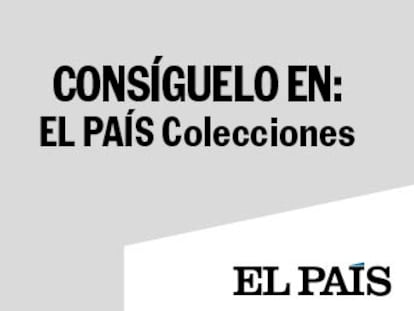Cable sobre prácticas corruptas en Cuba
Una comunicación de la Sección de Intereses de La Habana señala que "el engaño se ha convertido en una forma de vida" en el país caribeño
| ID: | 61899 |
| Date: | 2006-04-26 18:34:00 |
| Origin: | 06HAVANA8986 |
| Source: | US Interests Section Havana |
| Classification: | CONFIDENTIAL |
| Dunno: | 06HAVANA8769 |
| Destination: | VZCZCXRO5713 PP RUEHFL RUEHKW RUEHLA RUEHROV RUEHSR DE RUEHUB #8986/01 1161834 ZNY CCCCC ZZH P 261834Z APR 06 FM USINT HAVANA TO RUEHC/SECSTATE WASHDC PRIORITY 6107 INFO RUEHZL/EUROPEAN POLITICAL COLLECTIVE RUEHWH/WESTERN HEMISPHERIC AFFAIRS DIPL POSTS RUEHMD/AMEMBASSY MADRID 0076 RUCOWCV/CCGDSEVEN MIAMI FL RUESDM/JTLO MIAMI FL RHEHNSC/NSC WASHDC RUMIAAA/USCINCSO MIAMI FL |
C O N F I D E N T I A L SECTION 01 OF 03 HAVANA 008986 SIPDIS SIPDIS E.O. 12958: DECL: 04/24/2016 TAGS: PGOV, SOCI, ECON, CU SUBJECT: (CUBA IS) A STATE ON THE TAKE REF: HAVANA 8769 HAVANA 00008986 001.2 OF 003 Classified By: MICHAEL E. PARMLY FOR REASONS 1.4 b/d 1. (C) Summary: Castro has spent the past five months battling corruption in a country where trickery has become a way of life. Because most Cubans work for the state, the entire system - from petty officials to Castro's closest advisors - is rife with corrupt practices. Given state control over all resources, corruption and thievery have become one and the same. Corrupt practices also include bribery, misuse of state resources and accounting shenanigans. In its post-Soviet incarnation, Cuba has become a state on the take. End Summary. From Petty to Grande -------------------- 2. (U) In October 2005, Castro embarked on a crusade against corruption that shows no signs of letting up (ref A). The concerted campaign has disrupted the lives of many Cubans living off their abilities to "resolver" (a word that implies everything from simply finding a creative solution to outright stealing). Fifteen years after the collapse of the Soviet bloc, "resolver" has become a way of life in Cuba. Economic desperation combined with totalitarian control has resulted in a state system riddled by corruption from top to bottom. Bribes ------ 3. (U) Bribes are a common means of getting around suffocating controls. For example, Cubans are only allowed to swap housing ("permutar") if both residences are of equal value. Money is not allowed to exchange hands in the transaction, but often does. If a Cuban mother swaps a small apartment for a large one in a trade that obviously involved compensation, she must also be prepared to pay a GOC housing official several hundred dollars to look the other way. An additional fee may be required to push the deal through in a timely fashion. As always, Cubans must tread carefully; accidentally propositioning a clean official - or worse, a strident revolutionary - could result in disaster. 4. (U) Block organizations (CDRs) have declined in prominence over the years (to the point where few Cubans have any interest in becoming CDR President), but still maintain control over the distribution of goods. On rare occasions, these goods are valuable. When televisions or refrigerators become available through the state system, CDR Officers are famous for giving preferential access to two groups: Those that maintain good revolutionary credentials... and those that can afford it. 5. (U) Bribes are also key to getting good jobs (good jobs being those with opportunities to "resolver"). For example, a job with access to a fuel tank (gas station or other outlet) reportedly costs thousands of dollars, while a job in tourism (with access to tips) might cost in the hundreds. An unemployed Cuban told P/E Officer that a job with elite state firm CIMEX (The Import-Export Corporation) would cost him up to 500 USD. 6. (U) Cuban police officers are famous for taking bribes. They pull drivers over for myriad transgressions, then describe their "sick child." An Italian tourist told P/E Officer that every time a police officer pulled him over, it was always the officer's "birthday." The police are so corrupt that the GOC regularly fills their ranks with unsullied recruits from the East. As time passes, the new crop becomes as corrupt as the old, and a fresh batch is brought in to replace them. Misuse of State Resources ------------------------- 7. (U) Cash is not abundant in Cuba, such that bribes sometimes take a back seat to bartering, exchanging favors, and "tit for tat" deals. A Cuban might not enjoy control over anything easily stolen or sold on the black market, but putting resources to other uses can be lucrative. Transportation is a prime example. As every Cuban knows, anyone behind the wheel of a state vehicle (whether truck, bus, car or train) earns two incomes: a HAVANA 00008986 002.2 OF 003 pittance from the state, plus additional income transporting people or goods on the side. In another example, a Cuban woman told P/E officer how she finally managed to get her tooth capped successfully by paying hard currency at an underground dental clinic, staffed by health ministry dentists and outfitted with equipment stolen from the state. 8. (U) Certain sectors, including shipping, tourism, construction and food are notorious for generalized theft and corruption. For example, there is a thriving black market in cement, paint and wood. Or as one Cuban commented (in response to Vice President Carlos Lage's 2005 promise to build 10,000 new housing units), "the GOC can't build anything because it is simply impossible to collect enough supplies in one place." The ration system, which leaves bulk foods under the supervision of bodega employees, is also notorious for theft and corruption. As mentioned above, the housing office, or "Vivienda," is also famous for corruption. 9. (U) In Cuba's so-called "productive" sectors, much wheeling and dealing goes on behind the scenes as state managers swap goods, concoct inventories, fabricate receipts, and deal in imaginary resources. They are aided by an accounting system that equates the Cuban Peso (CP) with the Cuban Convertible Peso (CUC) on paper, though the real exchange rate is 26 to 1. (For example, some official state purchases are made in CUCs while others are made in CPs.) To aid in the confusion, Cuban managers and accountants still track their accounts with paper and pencils. The resulting morass of numbers is so incomprehensible that even "clean" managers are forced to play accounting tricks in order to do their jobs. 10. (U) Some state installations are run by de facto "mafias." One Cuban told P/E officer about the manager of a bread distribution center who put his friends in key jobs. He eventually came to control an entire chain of state bakeries. Power and Position ------------------ 11. (C) The GOC stopped giving licenses to new paladars (home-based restaurants) several years ago, raising questions as to what the remaining operations had done to stay open. An American specialist on the topic posited that all upscale paladars were in some way "connected." For example, a USINT officer outside the XXXXXXXXXXXX paladar XXXXXXXXXXXX spotted the supposedly "self-employed" owner drive up in a car with Ministry of the Interior (MININT) plates. A one-table paladar in the Santa Fe neighborhood (known as the "fish paladar") reportedly enjoys an elite clientele - Raul Castro. In these days of heightened state control, merely bribing inspectors is not enough to stay open. 12. (U) The benefits of holding a position of power within the GOC can be lucrative. A Swiss businessman told P/E officer that Cuban managers take kickbacks for awarding large contracts to foreign companies and then deposit those kickbacks in banks abroad. "Just like everywhere in the world, a million dollar contract gets you 100,000 in the bank," he commented. These state managers are not so much members of the revolutionary elite, but rather pragmatists who have carved out a space for themselves within an otherwise rigid system. The former head of the Tourism Ministry might serve as an example - he was dismissed in 2004 due to "serious mistakes relating to control" and replaced with a military general. 13. (C) Separate from this elite crowd of entrepreneurs stand Castro's cadres of regime faithfuls, some of whom are widely rumored to be corrupt (such as Castro clan insider General Julio Casas Regueiro). Last year, Battle of Ideas Head Otto Rivero (a Castro protege) almost lost his job due to a corruption scandal. Battle of Ideas personnel were rumored to be dipping into the pie at all levels, from accounting shenanigans to making off with food and television sets destined for the "Free the Five" campaign. Comment ------- 14. (C) Because the state controls - or tries to control - HAVANA 00008986 003.2 OF 003 all aspects of life in Cuba, theft and corruption have become one and the same. The hotel manager who appropriates foodstuffs is both corrupt (he uses his state job for personal gain) and a thief (he steals). The more corruption grows, the more Castro tightens control, and the more Cubans turn to corruption to get what they want. The GOC leadership is well aware of the problem, but Castro can't seem to make peace with it. As one local diplomat ruminated, "Castro leads a saintly life, but saints are special because they are rare." And so the Comandante continues his struggle to wipe out corruption, seemingly oblivious to its irreversibility as long as profitable activity is illegal, individual success is cause for suspicion, and old-fashioned hard work gets you nowhere. PARMLY |
Traducción automática. Puede que el texto traducido no sea fiel al original
Tu suscripción se está usando en otro dispositivo
¿Quieres añadir otro usuario a tu suscripción?
Si continúas leyendo en este dispositivo, no se podrá leer en el otro.
FlechaTu suscripción se está usando en otro dispositivo y solo puedes acceder a EL PAÍS desde un dispositivo a la vez.
Si quieres compartir tu cuenta, cambia tu suscripción a la modalidad Premium, así podrás añadir otro usuario. Cada uno accederá con su propia cuenta de email, lo que os permitirá personalizar vuestra experiencia en EL PAÍS.
¿Tienes una suscripción de empresa? Accede aquí para contratar más cuentas.
En el caso de no saber quién está usando tu cuenta, te recomendamos cambiar tu contraseña aquí.
Si decides continuar compartiendo tu cuenta, este mensaje se mostrará en tu dispositivo y en el de la otra persona que está usando tu cuenta de forma indefinida, afectando a tu experiencia de lectura. Puedes consultar aquí los términos y condiciones de la suscripción digital.



















